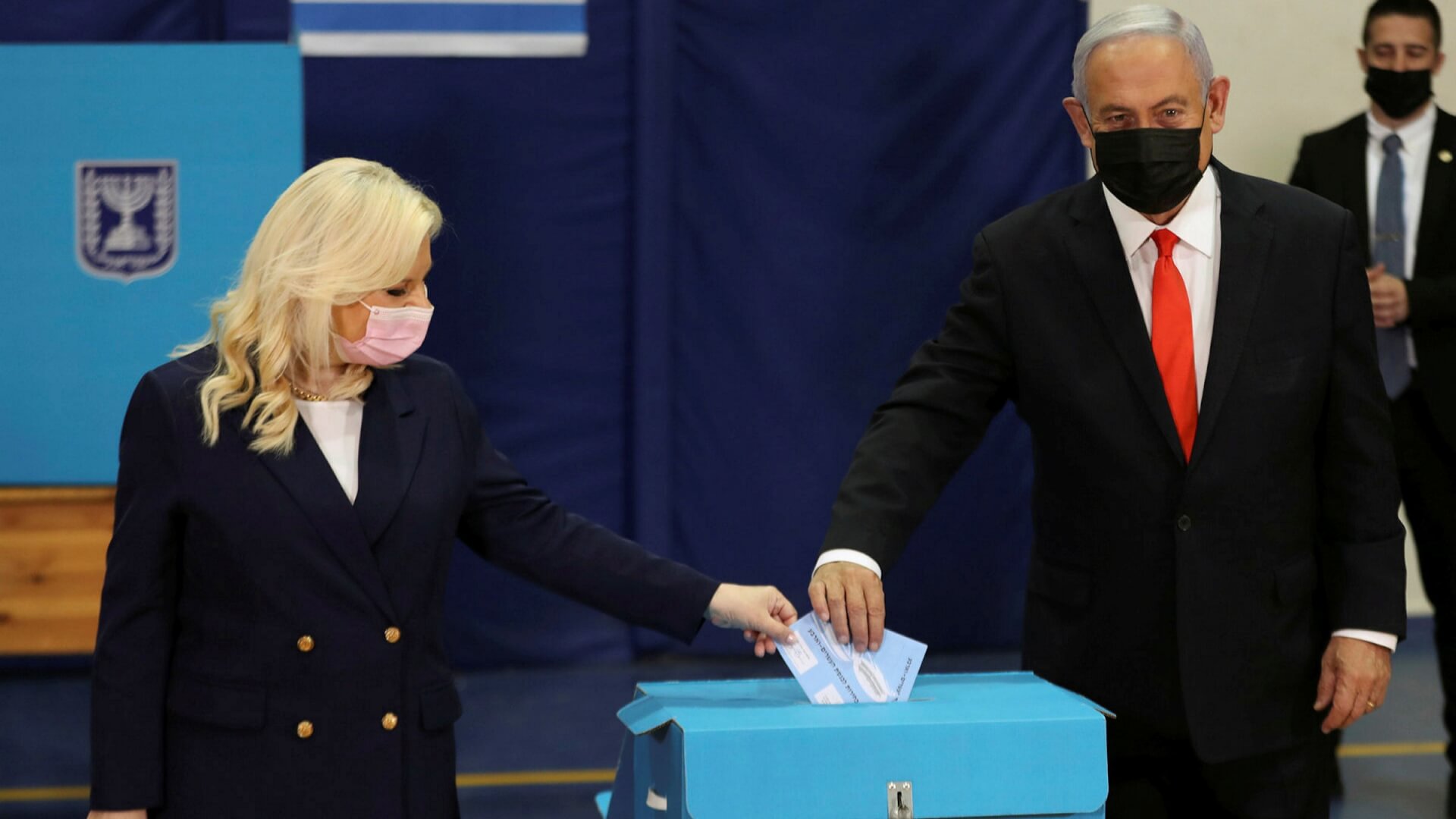Israel is likely headed towards a stalemate, after exit polls forecasted that Prime Minister Benjamin Netanyahu’s Likud party would not be able to win a majority in what is Israel’s fourth general election in the last two years. Voter turnout, which was recorded at 67%, saw a 4.3% decrease compared to the previous elections, and was at its lowest level since 2009.
Although the right-wing Likud party appears to have a slight edge over rivals, it will most likely have to depend on a coalition to form the government. PM Netanyahu has even urged his competitors to join him to form a “stable Israeli government” by putting aside all differences to avoid a fifth election. However, unlike the last vote in which most of his opposition was from the left, this time around many right-wing candidates like Naftali Bennett and Gideon Sa’ar are posing a major challenge to the embattled leader.
While opposition leader Yair Lapid’s moderate Yesh Atid party, is expected to come second with around 17 seats, he is unlikely to form government. Lapid has repeatedly courted the Arab parties in joining his coalition, but early polls have suggested that the major Arab parties under the United Arab Coalition, led by Mansour Abbas, will not make it to the Knesset. This is where Naftali Bennett’s Yamina party is expected to play a crucial role. Bennett, who is often referred to as a “king-maker” in Israeli politics, has refused to back Netanyahu while also vowing not to join Lapid’s party.
Polls indicate that Likud will win around 32 seats and together with allies like Shas, United Torah Jerusalem, and Religious Zionism, it is projected that the pro-Netanyahu coalition will win 57 seats, which is slightly short of the 61-margin required to form a stable government. The anti-Netanyahu coalition is predicted to win around 55 seats. If Bennett’s Yamina party tips in favour of the pro-Netanyahu coalition, Netanyahu and allies could comfortably form government with a majority of around 65 seats.
The election is widely regarded as a referendum on Netanyahu’s corruption allegations and his handling of Israel’s COVID-19 response. Hundreds of thousands of protesters from all over Israel protested in Jerusalem over the past few days and called for Netanyahu’s resignation. However, the low voter turnout could indicate a growing apathy among Israel’s population towards voting, as there has been no clear winner during the previous three elections.
The widely anticipated results are expected to be officially released by the end of the week, and a clearer picture is expected to emerge as more ballots are counted.
Israel Elections: Lowest Voter Turnout Since 2009, Polls Forecast Deadlock
As voting closed for Israeli elections, exit polls indicate a deadlock, leaving PM Benjamin Netanyahu's future unclear. Voter turnout was recorded at 67%, which is the lowest level since 2009.
March 24, 2021

Israeli PM Benjamin Netanyahu and his wife Sara cast their votes SOURCE: REUTERS
